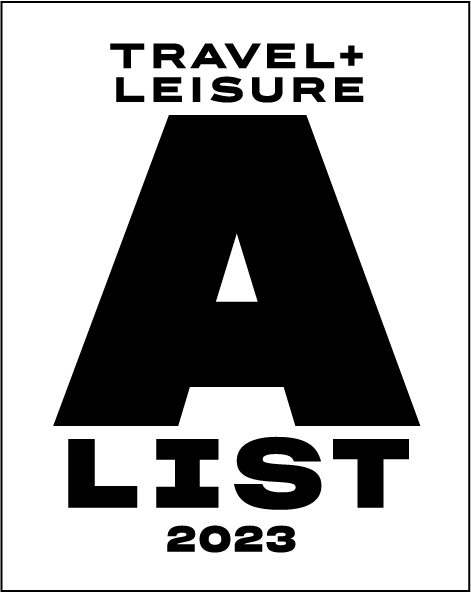The Republic of Seychelles is an island country spanning an archipelago of 115 islands in the Indian Ocean, some 1 500 kilometres east of mainland Africa, northeast of the island of Madagascar. Seychelles, with an estimated population of 86 525, has the smallest population of any African state. The islands are a mix of granitic (of which North Island is one) and coral islands. As the islands of Seychelles had no indigenous population, the current Seychellois are composed of people who have immigrated to the island. The largest ethnic groups are those of African, French, Indian and Chinese descent.
INTERESTING FACTS
The original flag was adopted at independence on 29 June 1976. In 1977, when President James Mancham was overthrown by France-Albert René, the old flag was abolished and the red, white and green flag of the Seychelles People's United Party came into use. The new flag was adopted on 18 June 1996. The oblique bands symbolise a dynamic new country moving into the future. The colour blue depicts the sky and the sea that surrounds the Seychelles. Yellow is for the sun which gives light and life, red symbolises the people and their determination to work for the future in unity and love, whilst the white band represents social justice and harmony. The green depicts the land and natural environment.
GOVERNMENT
The Seychelles is a multiple-party republic that gained independence on 29 June 1976. The Seychelles president, who is both head of state and head of government, is elected by popular vote for a five-year term of office. The cabinet is presided over and appointed by the president, subject to the approval of a majority of the legislature. The unicameral Seychellois parliament (National Assembly or Assemblée Nationale) consists of 34 members, of whom 25 are elected directly by popular vote, while the remaining nine seats are appointed proportionally according to the percentage of votes received by each party. All members serve five-year terms. The main rival parties are the ruling socialist People's Party (PP) or Parti Lepep (LP), and the liberal democrat Seychelles National Party (SNP).
ECONOMY
During the plantation era, cinnamon, vanilla and copra were the chief exports. In the 1960s, about 33% of the working population worked at plantations, and 20% worked in the public or government sector. In 1971, with the opening of Seychelles International Airport, tourism became a serious industry, basically dividing the economy into plantations and tourism. The tourism sector paid better, and the plantation economy could only expand so far. The plantation sector of the economy declined in prominence, and tourism became the primary industry of Seychelles. Despite the growth of tourism, farming and fishing continue to employ some people, as do industries that process coconuts and vanilla. The prime agricultural products currently produced in the Seychelles include sweet potatoes, vanilla, coconuts, and cinnamon. These products provide much of the economic support of the locals. Frozen and canned fish, copra, cinnamon, and vanilla are the main export commodities of the islands.
CURRENCY
The local currency is the Seychelles Rupee (SCR), made up of 100 Cents. Notes come in denominations of SCR10, 25, 50, 100 and 500 and coins from SCR5 and 1, and 5, 10 and 25 Cents.
LANGUAGE
Seychelles has three official languages: Creole, English and French.
RELIGION
Roman Catholicism is the dominant religion, although there are Anglican and other Protestant churches as well as smaller Muslim, Hindu and Bahá’i communities based on Mahé, Praslin and La Digue.
TIME
Seychelles is Greenwich Mean Time (GMT) + 4 hours, Central European Time (CET) + 3 hours in winter and (CET) + 2 hours in summer.
CLIMATE
The islands enjoy a pleasant tropical climate year round and, as they are situated outside the cyclone belt, there are no extremes of weather. The temperature seldom drops below 24ºC or rises above 33 ºC. Globally changing climatic conditions make it difficult to predict exact weather patterns. From October to March the islands are affected by the northwest trade winds. This is when the sea is generally calm with warm tropical water. From May to September, the weather is generally drier and cooler, with choppy seas, particularly on the south-eastern coast, which is when the southeast trade winds occur. The wettest months are December and January.
Temperature (ºF) – These are the average lows and highs:
|
Jan
|
Feb
|
Mar
|
Apr
|
May
|
Jun
|
Jul
|
Aug
|
Sep
|
Oct
|
Nov
|
Dec
|
|
76/85
|
76/86
|
77/87
|
78/88
|
78/86
|
77/84
|
75/83
|
76/83
|
76/84
|
76/85
|
76/86
|
76/86
|
Average Rainfall (inches) – This varies according to the year and location:
|
Jan
|
Feb
|
Mar
|
Apr
|
May
|
Jun
|
Jul
|
Aug
|
Sep
|
Oct
|
Nov
|
Dec
|
|
15.5
|
10.7
|
6.8
|
7.3
|
5.1
|
2.6
|
3.3
|
4.0
|
5.0
|
8.4
|
8.8
|
11.5
|
USEFUL INFORMATION
VISAS
Any applicable visas and/or relevant documentation are your responsibility. For further visa information please refer to the website www.seychelles.visahq.com/requirements.
BANKS & PAYMENT
Travellers Cheques and foreign currencies can be changed at banks or hotels. Visitors are required to use only local currency (this is due to the new Seychelles Foreign Exchange Act) when making payments in hotels and guest houses or when paying for other hospitality related services such as hiring of cars and boats and the services of tour operators or travel agents, patronage of casinos and domestic transfers within Seychelles.
All banks handle Travellers Cheques and foreign exchange transactions. Passports are required for all transactions and nominal commissions may be charged. Barclays Bank and Banque Francaise Commerciale have branch offices on Praslin and La Digue. The banks at the airport open only for flight arrivals and departures. Please note that North Island holds a limited amount of Seychelles Rupees on the island – should you wish to make a significant exchange, please advise the Duty Office 48 hours in advance.
Banking Hours:
Monday to Friday: 08:00 – 14:00
Saturday: 08:00 – 11:00
CREDIT CARDS
MasterCard, Visa and America Express are widely accepted throughout Seychelles.
SHOPPING
The opening hours for shops on Mahé are from 08:00 to 17:00 Monday to Friday and 08:00 to 12:00 on Saturday. The main post office in Victoria is open from 08:00 to 16:00 Monday to Friday and 08:00 to 12:00 on Saturdays.
VALUE ADDED TAX (VAT)
Restaurants and hotel bills normally include a VAT of 7% to 10%.
PROHIBITED EXPORTS
The export of the following items is prohibited:
- Tortoises, turtles and shells
- All wild birds, all species endemic to Seychelles
- All plant material
- Fish
- Mammals and marine plants
Please note that souvenirs and artefacts made from permitted local products have no restrictions, however, should be declared to avoid any misunderstandings.
LUGGAGE ON SCHEDULED COMMERICAL FLIGHTS
Scheduled airlines generally carry a weight restriction of 20 kg (44 lb) per economy class traveller in one suitcase/bag as well as one item of hand baggage (the total dimensions – height, width and length – may not exceed 115 cm or 45 inches). The average weight for business class travel is 30 kg (66 lb) and 40 kg (88 lb) per first class traveller. Please consult your specific airlines directly as slight differences do apply per the individual airline companies. If combining scheduled commercial airline flights and light aircraft/helicopter air transfers, then the specified luggage restriction for air transfers will apply.
If you are travelling economy class on Emirates, a minimum of two hours is required for checking in.
HELICOPTER TRANSFERS
We are currently using Zil Air for all helicopter transfers. The helicopter used is a EUROCOPTER EC 120 which seats a maximum of 4 guests per flight. Using standard fuel allowances and normal weather conditions, guests are limited as follows:
- An adult male maximum weight cannot exceed 80 kg (176 lb).
- An adult female maximum weight cannot exceed 60 kg (132 lb).
- A child (9 years and younger) maximum weight cannot exceed 40 kg (88 lb).
- Luggage allowance per passenger per flight cannot exceed 20 kg (44 lb), including hand luggage and camera equipment. Space is limited so only soft bags are allowed.
The maximum total weight allowed per helicopter transfer is restricted to 365 kg (804 lb). Thus the total number and weight of passengers plus luggage on a transfer must be calculated accordingly to determine whether an additional helicopter is required.
All flights are subject to weather conditions and will be at the Captain's discretion. Please note that when departing North Island, you are required to be at Guest Relations 30 minutes prior to your departure time to ensure that there are no delays.
Note that there are no night emergency helicopter services available in the Seychelles.
For any further information, please contact your agent.
EXCESS LUGGAGE
If you bring more than the allocated luggage allowance per person, a cost willl be encurred.
RECONFIRMING FLIGHTS
Please ensure that all your onward flights are reconfirmed at least 72 hours prior to flying. Listed below are some telephone numbers to assist you in reconfirming your flights.
Air Seychelles Mahé + 248 381 000
Air Mauritius Mahé + 248 322 414
British Airways Mahé + 248 384 000
Air France Mahé + 248 322 414
HEALTH REGULATIONS
The Seychelles is free of tropical diseases such as malaria, bilharzia, typhoid and dysentery. No vaccinations are necessary.
WATER
Tap water meets World Health Organization specifications and is safe to drink throughout the country.
ELECTRICITY
Electrical appliances run on 220V/240V. The Seychelles uses the British standard square 3-pin 13-amp plug, however, it is advisable that you carry your own.


